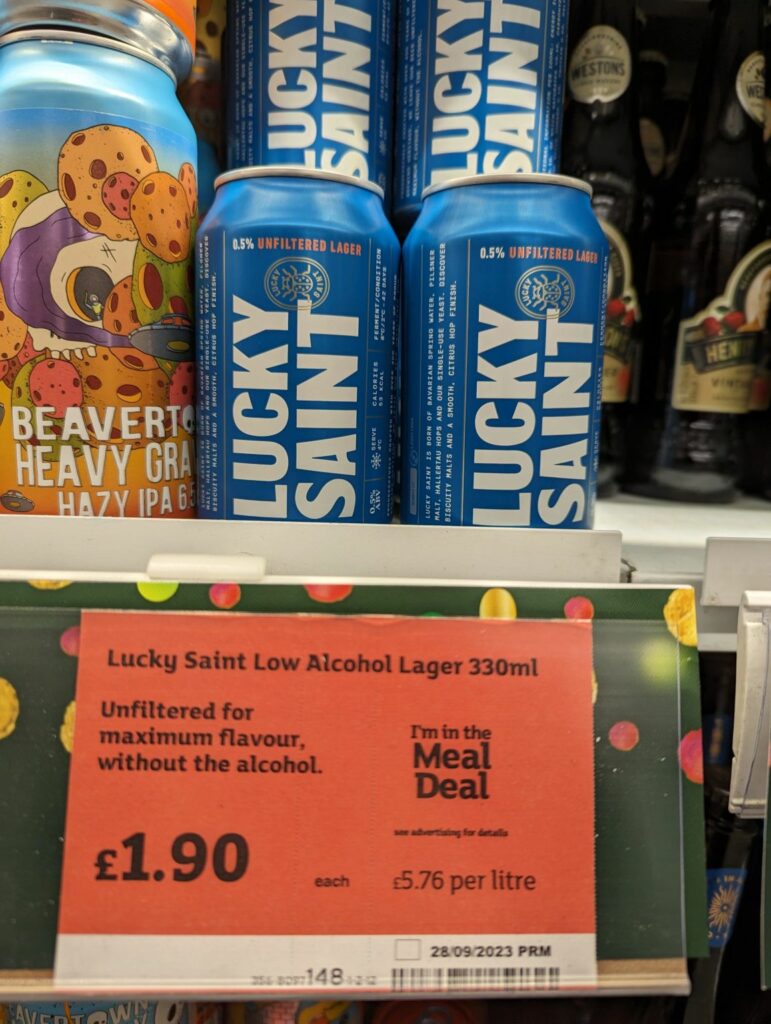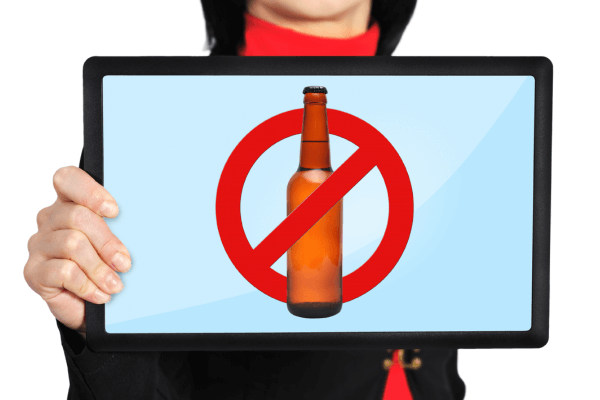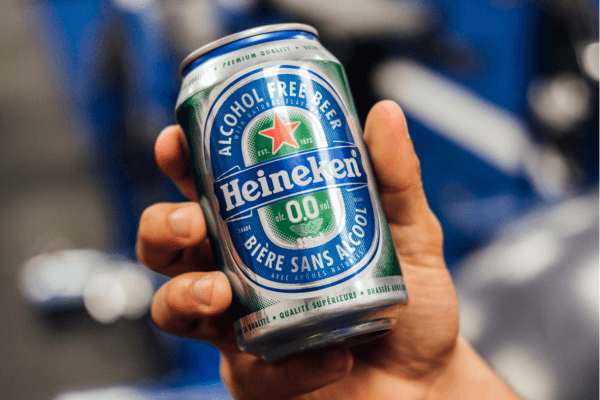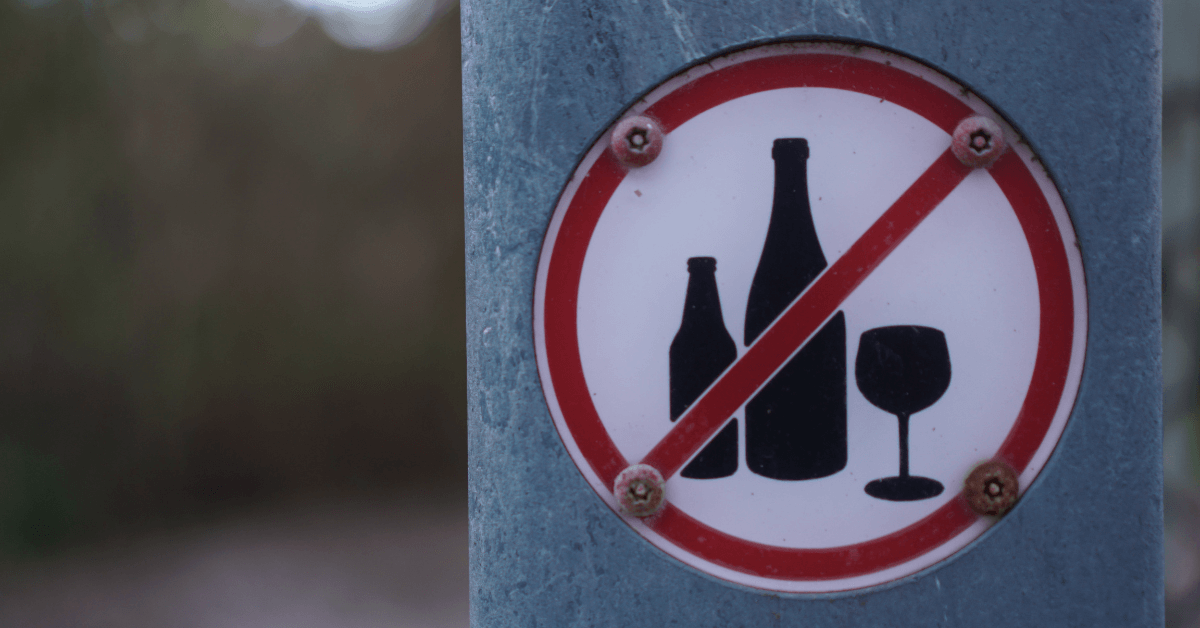It’s no secret, the nation’s obsession with meals deals with industry research indicating that 33% of British workers have two meal deals a week with 14% having three a week. This can equate to a whopping £10,044 spent over a working lifetime.
However, there has been a new addition to a meal deal which has sparked much debate. The inclusion of 0% beer within the meal deal. This is the case at Sainsbury’s with the inclusion of 0% beer brand Lucky Saint in the meal deal and at Waitrose with Peroni 0.0 being included.
They can be appealing options but does this cause a problem when bringing these drinks back into the office as part of a meal deal and begs the wider question, are 0% alcoholic drinks suitable for the workplace?

Considerations For Non-Alcoholic Drinks in The Workplace
Whilst it is evident for the growth in popularity of 0.0% alcoholic drinks both in the humble meal deal and in restaurants and bars, there is still definitely stigma and perception challenges when consuming these in the workplace. For example, no one would bat an eyelid at a colleague drinking a fruit juice or a soft drink at 10am on a Wednesday but the same cannot be said for drinking a 0.0% beer or wine.
In a legal sense, consuming a non-alcoholic drink in the workplace is not illegal. It would fall in the hands of decision makers as to their suitability whilst in work.
There are many factors at play for and against the consumption of non-alcoholic drinks within the workplace and here are some important ones to consider when deciding your businesses stance:
Context of Your Business
The context of the business and the perception of drinking 0.0% alcoholic drinks can create a very important factor as to whether they are suitable.
Non-alcoholic drinks are widely marketed and look very similar to their alcoholic counterparts. The same colours, bottle shapes, main branding elements and smells are often identical. They often take advertising space that was previously occupied by alcoholic beverage advertising.
There are professions where the stigma around non-alcoholic drinks would be extremely problematic. For example, there would be uproar if a teacher drank 0.0% wine in front of children and similarly if a bus driver was drinking a bottle of 0.0% beer. The clear solution in roles of this nature would be to make policy changes against consuming these drinks.
Additionally, in customer facing roles there can be image and reputational problems created if a staff member was consuming these drinks due to the connotations of the alcoholic versions which have a very similar appearance.
However, non-alcoholic drinks could fit into some company’s cultures, for example non-customer facing roles with a more relaxed environment.

Stance on Similar Issues
Within recent years, there has been a rise in the popularity of vaping and other cigarette alternatives. Though vaping is not against any anti-smoking laws, there could already be a policy for vaping at workstations and these same principles could be chosen to be carried over.
Though there are obvious differences, but there could be consistency applied based on the context of the organisation.
Impact on Productivity
Drinking non-alcoholic drinks may have a detrimental impact on productivity due to potential placebo effects which could be created. Alcohol is often associated with socialising and winding down. Though non-alcoholic drinks are clearly different in terms of actual alcohol content, they are designed to taste the same. Therefore, there could be the expectancy to feel the same relaxed state due the previous experiences with alcohol in some circumstances.
The Alcohol Content
Recommendations by the government state that alcohol-free beverages may contain up to 0.05% ABV. This is a trace amount and below the amount of alcohol naturally occurring in many foods and drinks. Common foods that can contain a trace of alcohol are bananas as they ripen and also bread during the proving process due to the yeast.
Though they look and taste the same as regular alcoholic drinks the same level of alcohol content is absent.

Employee Wellbeing
There is a clear duty of care towards staff. Introducing the look and smells of non-alcoholic bottles and cans may be triggering to some staff and have an adverse impact on their mental and physical wellbeing. You can not assume or know some employees past relationships with alcohol as this is a very personal and sensitive matter. Non-alcohol versions of drinks could be almost viewed as a placebo and could have a damaging effect on staff based on their previous direct or indirect experiences or beliefs.
Ultimately, it’s a case-by-case basis as to whether it is suitable to drink non-alcoholic drinks at work and ultimately depends on the nature and context of the business. It’s worth assessing this social quirk to decide if it will be more problematic than beneficial for you and if guidance and policy needs to be put into place.


